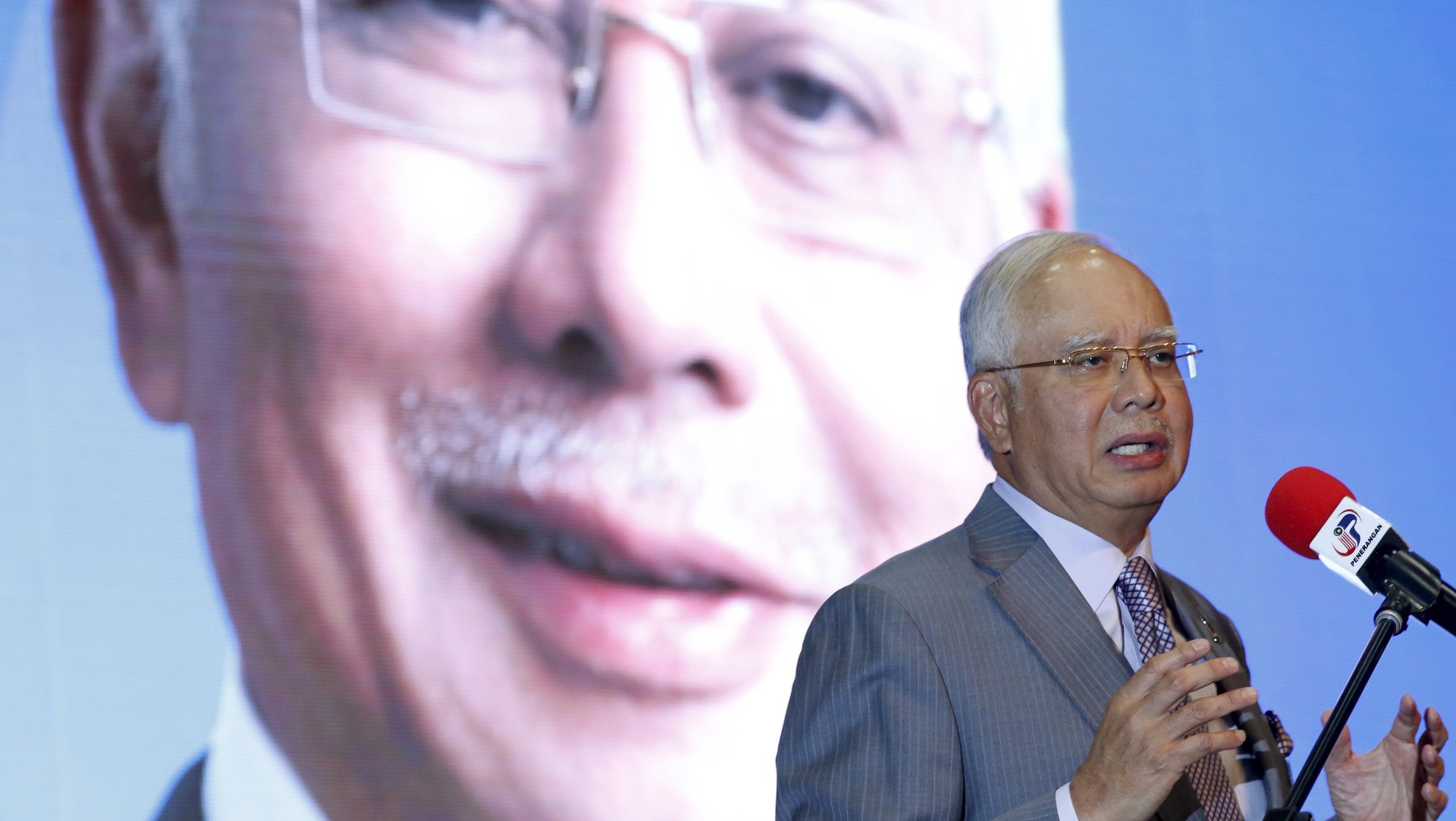Malaysian police are patrolling Twitter for drawings of the prime minister as a clown
Malaysian prime minister Najib Razak can’t seem to shake suspicions of corruption, though he’s worked hard to silence critics, opponents, and the media. His handpicked authorities recently argued in court that even T-shirts with the word “clean” on them—worn by anti-corruption protestors last year—were a threat to public order.


Malaysian prime minister Najib Razak can’t seem to shake suspicions of corruption, though he’s worked hard to silence critics, opponents, and the media. His handpicked authorities recently argued in court that even T-shirts with the word “clean” on them—worn by anti-corruption protestors last year—were a threat to public order.
Now it appears Najib’s officials are monitoring Twitter and other social media platforms for unfavorable portrayals of the prime minister—and warning individual users to be careful.
Late last month artist Fahmi Reza drew Najib as a clown with the words, ”In 2015, the Sedition Act was used 91 times. But in a country full of corruption, we are all seditious.” Critics consider that act to be an outdated, draconian law—introduced by the then-still-ruling British colonialists in the 1940s—to stifle freedom of expression. It was toughened in April 2015 to allow the government to block online media deemed to be seditious. Within hours the police tweeted Fahmi a warning, telling him that they were watching his account and that he should use it ”prudently and in line with the law.”
That particular warning backfired, however, as word of it spread through social media, resulting in media attention—including by the BBC—and a stream of more clown-themed drawings of the prime minister. Artists rallied around the hashtag #kitasemuapenghasut (“we are all seditious”).
Grupa, an artist collective, quickly showed solidarity with Fahmi, posting and re-posting illustrations on its Twitter and Facebook accounts.
The drawings come after Najib was cleared of any wrongdoing in the matter of the state investment fund 1Malaysia Development Berhad (1MDB). Reports last year that nearly $700 million from the fund ended up in the prime minister’s personal bank accounts led to anti-corruption demonstrations across Malaysia and abroad.
But the decision to clear Najib was met with widespread derision and cynicism, as was the reason provided for doing so: that the money had been a personal donation from Saudi royalty. Many noted the man who cleared Najib—attorney general Mohamed Apandi Ali—was picked by the prime minister himself, after the former attorney general (who had been investigating 1MDB) and other top officials were fired or nudged out of power after the scandal erupted.